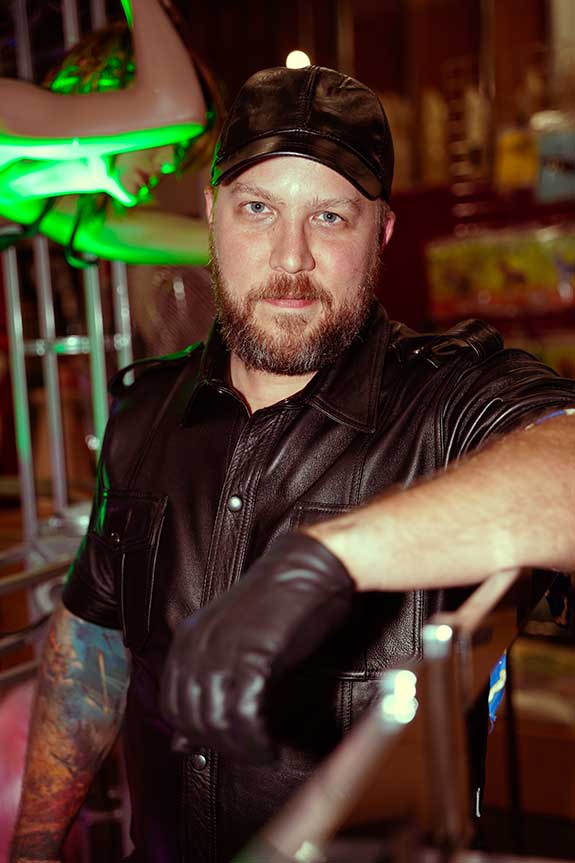Finding a Sex Work-Friendly Therapist
Written by a Sex Worker/Therapist
Disclaimer: You are not “too much!”
You are not “too fucked up” for therapy just because you haven’t found someone who gets you. Therapy is a gatekept profession, meaning it is filled with a lot of privileged people who are out of touch with the complexities of survival and the impacts of whorephobia.
Any shame you have felt from a therapist is a reflection on them and the therapy industry, not on you.
When I was a sex worker, I wanted a therapist who I could talk to about grief. I found one person who was offering free therapy through a non-profit, and decided to try her out. I wanted to show up authentically, so I was honest about how I made my money. Immediately, I was being interrogated about how often I use substances. I told her I was not there to talk about substance use, but she would not budge. I walked out of her “safe, non-judgmental” office feeling super gross, and never went back. In fact, I stayed far, far away from therapy for a while after that, continuing to navigate grief all on my own. It fucking sucked.
I eventually found my way to a therapist who is sex workaffirming, and it was like I could finally breathe again. I didn’t have to justify the ways in which I survived, and I didn’t have to worry about my “lifestyle” being pathologized.
I am now a therapist that works primarily with sex workers and survivors of sex trafficking. Being on this side of things, I have learned two conflicting truths: there are a lot of wonderful, affirming therapists out there, AND a lot of therapists who buy into widespread misconceptions of sex work. The most important thing I have learned, however is: All sex workers, from the blade to the club to the camera, deserve equitable, comprehensive mental health care that goes beyond being “non-judgmental.”
The tips given in this article aim to help you filter out the bad from the worst, and the okay from the excellent.
Steps to Finding A Therapist
- Search the internet and ask friends. There are databases and resources near the back of this zine. You can search for keywords such as “sex work,” and sometimes “kink” or “sex-positive” will help you at least filter through the squares.
- If they have a website or any marketing materials like a brochure, look to find their Professional Disclosure Statement. This statement describes their education, credentials, populations they work with, specializations and approaches to therapy.
- Once you find a provider you’re willing to meet, get their contact info and request a FREE consultation. This is a short phone or video call that lets you ask questions before you start working together, and every therapist should offer this. This part of the process is referred to as “The Audition.”
The Audition
The first initial meeting with a therapist is a moment where the skills we learned from the industry can really help us out – being mindful of info we disclose, screening for red flags, lying to protect ourselves, all while still being friendly and approachable. Like Johns, therapists often demand authenticity and trust without putting in effort to earn it.
Remember:
- You are auditioning them – not the other way around!
- You do not need to disclose any of your experiences or identities until you are ready. It is the therapist’s job to demonstrate they are a competent and non-judgmental person.
- It is more than okay to be vague, and to fudge the truth a little. This person is still a stranger!
How to disclose your needs without disclosing your occupation:
- “I have been judged for my life experiences and am seeking a space to process how that has affected me.”
- “I need support from someone who understands the gig economy.”
- “I want to talk about how my relationship with work impacts my mental health.”
- “I want to talk about my relationship to body autonomy.”
- “I am a survivor of complex [sexual] trauma.”

Basic Q’s for ANY Therapist
- How does payment look for your services?
- What are your strengths or areas of expertise?
- How often do you seek out training or consultation?
- If you meet someone who is dealing with something you are unfamiliar with, how do you support them?
- Are you currently accepting clients? Do you have a waitlist?
- What days/hours are you available?
- Have you ever worked with [insert population or concern here]?
- How do you manage burnout?
- What steps do you take to protect client confidentiality?
- Do you offer case management or crisis support?
Deeper Questions
- When do you know a client isn’t a good fit? How/where do you refer them to?
- Do you address the impacts of surviving capitalism and oppression with your clients?
- What does harm reduction mean to you?
- What is your process for diagnosing people?
- What does intersectionality mean to you?
- Can you explain the difference between sex work and sex trafficking?
- What values guide you through the work?
- How do you support survivors of sexual or domestic violence?
- What is your approach to mandated reporting?
- How often do you interact with law enforcement or child protective services?
- Have you ever worked with a sex worker before?
Red Flags
- They do not give you enough time to ask all your questions and are rushing you through the process
- They do not know how to answer your questions, or refuse to answer them
- If you disclose a history of sex work, sex trafficking, or sexual abuse, and their response is overly emotional, like “OH you POOR THING!”
- They expect you to answer really personal, direct questions without giving you the option to say “no”
- You notice them pushing back on your questions – phrases like “I’m curious why you would ask me that?” are common ways therapists will deflect hard questions
- They self-disclose in a way that feels inappropriate
- or unhelpful, like “My mom was an escort and I was put into a lot of weird situations as a kid.” …okay, didn’t ask lol
- They are already making statements alluding to you leaving the industry : “When do you plan to stop?” “How much longer are you planning on doing that?”
- You notice them focusing on issues unrelated to the reason you are seeking support
- They are already asking you to explain a lot of terminology or circumstances
- They get really defensive, or the energy shifts when you start talking about mandated reporting or law enforcement
- Black and White thinking: They label SW as either “traumatic” or “empowering,” without acknowledging the vast spectrum of experiences or your own perspective
- THEY GIVE YOU A BAD VIBE -trust it!
Green Flags
- They make a clear effort to name sex workers on their website, in your initial convo (without being prompted), or in their Professional Disclosure Statement
- They acknowledge the harm caused by mandated reporting, and other ways therapists yield systemic power over marginalized communities
- They have a clear plan to seek support when faced with an unfamiliar problem, such as regular supervision, consultation, or training
- They do not question your questions and answer them to the best of their ability, and/or they do not get defensive when they do not have an answer
- They trust your expertise about your own experiences without pushing you to feel a certain way about SW
- Any self-disclosure feels helpful, comforting, and appropriate, such as sharing cultural identities or vague info about their background
- They offer sliding-scale private pay options because they understand insurance is not always available to SWers
- You feel that you might not have to mask, assimilate, or code-switch 100% of the time
- There is space to talk about all your experiences, not just ones related to trading sex
- They have lived experience in the industry (note: this does not guarantee that your values about SW will be the same!)
Turning a Therapist Down
Therapists, like sex workers, deal with rejection all the time. A therapist’s feelings, or their bag, is not your burden to bear. Here are some ways to let someone know you will not be working with them:
- “Thank you for your time. I am going to explore other options.”
- “I do not think we are a good fit for each other.”
- “I am going to keep searching. I really appreciate you making time for me.”
- “I am looking to find a therapist who is more familiar with my identities and/or experiences.”
- “I am looking for something different.”
- If it feels worth your energy, offer feedback: “I felt judgment during our initial interactions, and even if that wasn’t your intention, I want to acknowledge I was impacted by it.”
- Ghosting them is always an option!
Affirmations
Therapist-shopping SUCKS. Not only is it exhausting and time consuming, it can often make us feel othered, broken, overlooked and helpless. Keep these phrases with you through the process:
- I am worthy of support, regardless of how others treat me.
- The system is broken, I am not.
- I do not need saving or rescuing, I need a space to be myself.
- I am multifaceted and it is not my fault that others cannot see me in all my complexity.
- What others think of me is none of my business. What I think about myself is most important.
- I deserve care, consideration, and access to mental health support just like everyone else.
- I can find a path to healing regardless.

This article was originally published in the second issue of PROUD & Kinky Magazine. You may read it in its original format here.








